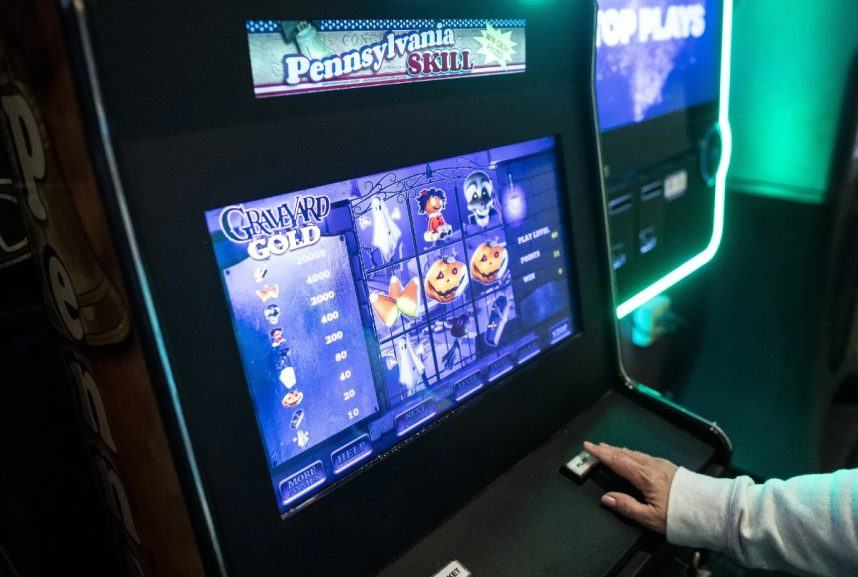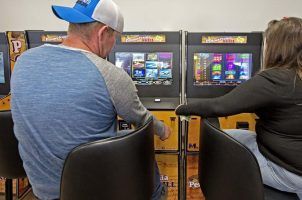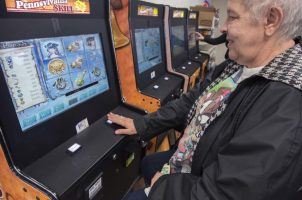Pennsylvania Skill Games Win Major Court Ruling, But State to Appeal Decision
Posted on: December 2, 2023, 10:24h.
Last updated on: December 2, 2023, 01:23h.
Pennsylvania skill games secured a major legal victory this week when the state’s Commonwealth Court upheld a lower county judge’s ruling that concluded the controversial terminals commonly found in restaurants, bars, convenience stores, and private clubs are not illegal gambling devices.

In a 7-0 decision published Thursday, the Commonwealth Court unanimously ruled that “skill games” — games that look, sound, and operate closely to a traditional slot machine found inside one of the state’s 17 brick-and-mortar casinos — do not constitute gambling.
The Commonwealth Court was reviewing an appeal of Dauphin County Judge Andrew Dowling’s conclusion reached in March that found the skill games not to violate the state’s Gaming Act or Crimes Code. Dowling said for a game to constitute gambling, “it must be a game where chance predominates rather than skill.”
Simply because a machine involves a large element of chance … is insufficient to find the machine to be a gambling device,” Dowling said.
The county judge determined that the element of chance with a skill game rests with the player rather than the machine, the latter which is the case with a slot or gambling machine. Dowling ordered the skill gaming machines state police previously confiscated to be returned along with any cash seized from skill gaming operations.
Major Win for Skill Gaming
The most popular skill gaming title in the state is “Pennsylvania Skill.” The game’s software was developed by Pace-O-Matic (POM), a Georgia-based firm, and the cabinets are manufactured and distributed by Pennsylvania-based Miele Manufacturing.
Unlike a Las Vegas-style slot, which automatically reveals whether a spin won or lost, a Pennsylvania skill game requires the player to identify a winning payline. The skill aptitude, supporters say, deals with players being able to pinpoint winning combinations of the animated reel symbols.
Players are presented with nine symbols and try and match as many paylines as possible with three like symbols arranged vertically, horizontally, or diagonally. Players are given 30 seconds to tap on the terminal before the round concludes.
The gameplay, the Commonwealth Court ruled, means skill is the overriding factor in determining a player’s outcome.
“The POM machines at issue in this case are not slot machines as commonly defined,” Commonwealth Court Judge Lori Dumas wrote in the majority. “Accordingly, these electronic games are not illegal. Further, applying the predominant factor test adopted by this Court … these POM machines are not gambling devices and therefore do not constitute derivative contraband.”
Appeal Forthcoming
Attorney Susan Affront, who’s representing Pennsylvania Attorney General Michelle Henry in the matter, says the state plans to appeal the Commonwealth Court’s decision to the Pennsylvania Supreme Court.
Pennsylvania’s casinos say the skill games are poaching business from their properties. Slot machines are taxed at an effective rate of 54% while skill games provide no tax benefit.
To their credit, the skill gaming firms have asked the state to legalize and tax their games to give players a better sense of confidence in participating. Legislation has been introduced in Harrisburg to both legalize and prohibit the games.
Related News Articles
Pennsylvania Skill Gaming Bill Receives Testimony From Casino Lobby
Most Popular
Mirage Las Vegas Demolition to Start Next Week, Atrium a Goner
Where All the Mirage Relics Will Go
Most Commented
-
Bally’s Facing Five Months of Daily Demolition for Chicago Casino
— June 18, 2024 — 12 Comments
















Last Comments ( 3 )
If chance must predominate rather than skill for a game to constitute gambling, does that mean playing video poker is not gambling because selecting which cards in your hand to replace is a skill? Does that mean playing poker in person at a casino is not gambling because players must know not only what cards to replace in their hands, but also how to bluff and how to read their opponents (i.e. "know when to hold them and know when to fold them")? Does this mean blackjack is not gambling because a player must know when to hit and when to pass? The level of skill required in all of these games exceeds what is required to play the skills games being considered in this case, and these skills must also be applied on every play (rather than just on those skills game plays where a winning line is actually visible). Is the Commonwealth Court's decision intended to deregulate these games (and numerous others not listed here) in addition to legalizing skills games? Even if this is not the Court's intent, will this decision result in the deregulation of other games like these as an unintended consequence?
A skill game is basically just a slot machine in which the player must identify any winning line(s) manually instead of having the machine identify the winning line(s) for them. However, if no winning lines are visible after a spin, what does a player's skill have to do with the gameplay?
Do you have friends, family members, or neighbors with a serious gambling problem? Don't encourage them to attend Gamblers Anonymous (GA) meetings unless they actually have the desire to stop gambling. That criteria is the ONLY eligibility requirement for membership in GA. The website is https://gamblersanonymous.org. Folks can easily find the closest meeting by using only their zip code. Back to PA skill machines, I guarantee you will find them waiting for you in nearly EVERY Pennsylvania zip code. The paychecks left behind there in their wake clearly illustrate how family homes can become broken homes. The sad horror stories? Oh, those are discussed at those GA meetings. Some advice for newbies is this: There never seems to be a big enough winning to make even the smallest dream come true. Don't invite chaos into your life unless you really want to experience it firsthand. It's right there in the corner just waiting for you and doing push-ups. Don't hope for that. Bottom line: GA meeting rooms are crowded with folks who will tell you, "It was my own best thinking that got me here."